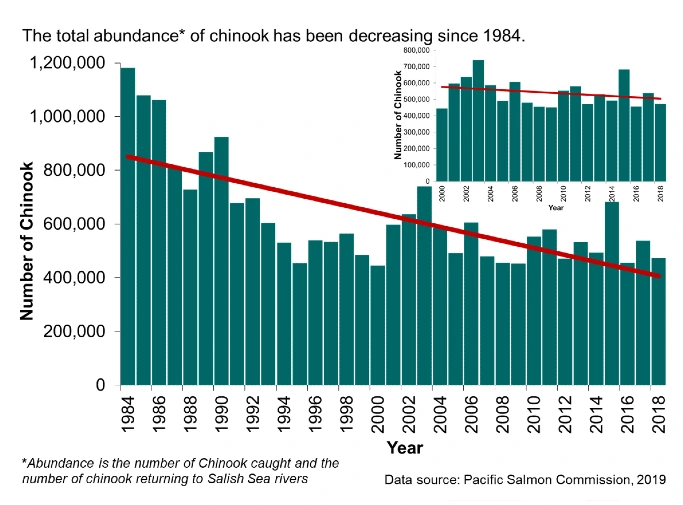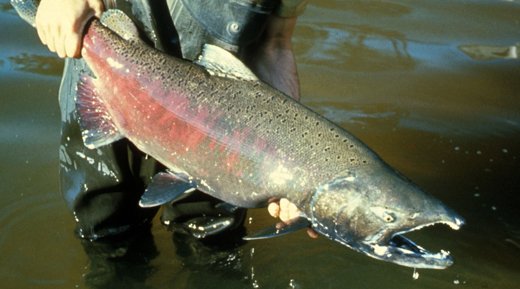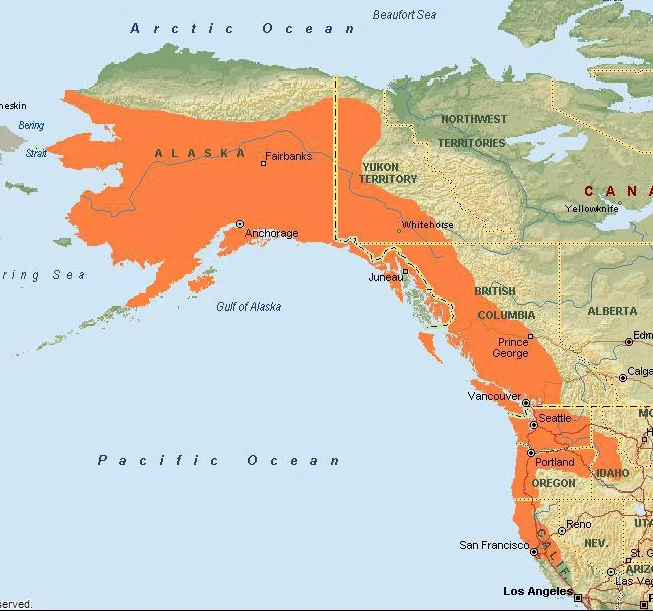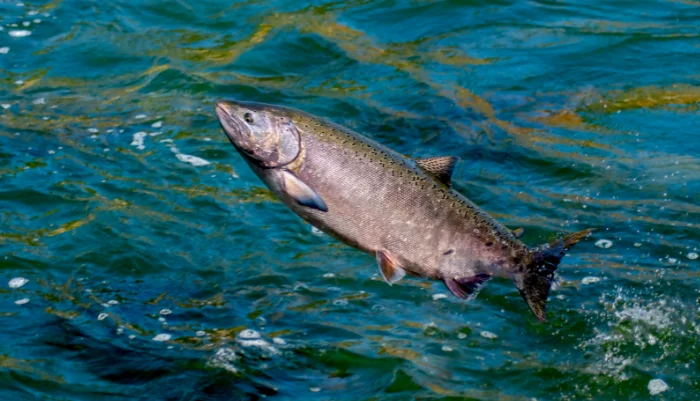On Friday, Oregon’s Governor Tina Kotek officially declared a fishing disaster in the state, stemming from a three-year setback in commercial fishing.
This decision was made after U.S. Secretary of Commerce, Gina Raimondo, recognized that the commercial fishery had suffered significant failures in 2018, 2019, and 2020.
This distressing situation arose from a fishery resource disaster that notably affected the Oregon Chinook Salmon Fisheries. This determination was in response to a plea made by the state’s previous Governor, Kate Brown, in October 2021.
With this disaster designation, fisheries can look forward to potential funding sourced from fishery disaster appropriations. This financial support aims to facilitate community recuperation, revitalize the fishery, and establish preventive measures to deter future disasters.
Governor Kotek revealed that affected fisheries would soon receive notifications about their eligibility for this funding from the National Oceanic and Atmospheric Administration.
Governor Kotek expressed her sentiments on the matter, stating, “The recent determination brings a glimmer of hope to commercial fishers who have been in suspense for years, uncertain about obtaining federal government assistance. This positive outcome was catalyzed by Governor Brown and our congressional delegation’s tireless efforts to champion the cause of Oregon’s commercial fisheries. I am also looking forward to a conclusive decision regarding our most recent request for a fishery disaster declaration.”
In addition to this, it was highlighted that Governor Kotek has also petitioned the U.S. Department of Commerce for an urgent federal fishery resource disaster declaration for ocean commercial salmon fisheries for the year 2023. The status of this request remains undetermined and is still under consideration.

Unraveling the Chinook Salmon Crisis: A Retrospective Analysis (Because Hindsight is Always 20/20)
The descent of Oregon’s Chinook Salmon fisheries into a state of disaster is a complex tapestry of ecological, economic, and policy-related factors. By revisiting the cascade of events and decisions leading up to this situation, we can unearth deeper insights into the multifaceted challenges faced and potential missteps taken.
In this section, we dissect the anatomy of Oregon’s fishing debacle (not that any asked us our opinion), shedding light on areas of improvement and proactive measures that might have altered the course of events.
Preemptive Conservation Efforts: It’s Best To Get In Front, Fast
A more proactive approach towards conservation can often preempt significant failures.
Oregon could have implemented more stringent catch limits or seasonal bans when initial signs of a declining Chinook Salmon population appeared. This early intervention might have given the salmon population a chance to recover before reaching crisis levels.

Diversified Fisheries Make For A Stronger Foundation
Over-reliance on a single species, like the Chinook Salmon, can lead to vulnerabilities in the fishing industry. Oregon could have promoted diversification in commercial fishing, encouraging the industry to explore other fish species that might be more resilient or abundant.
Aggressive Habitat Restoration
Efforts to restore and maintain the natural habitats of Chinook Salmon could have been amplified. This includes maintaining water quality, ensuring free-flowing rivers without obstruction, and taking steps to mitigate the impacts of climate change, which can adversely affect salmon breeding habitats.
Stronger Stakeholder & Community Engagement
Engaging with commercial fishers, local communities, environmentalists, and indigenous populations can lead to a more holistic approach to fisheries management. Their insights and on-the-ground experience can be invaluable in crafting effective policies and far too often, politics and government policies create a barrier wall and fail to see what’s happening on the ground.
Directly involving those that are experiencing the issues at hand firsthand, void of politics or policies, is the only real way for agencies to get a true sense of the problem and work towards solutions that benefit everyone.
Now, for this level of engagement to work, all parties must be willing to set aside their political viewpoints and assumptions and work to keep all informed and educated on the importance and long-term benefits of conversation and sustaining a balanced ecosystem. Oftentimes, just being included in finding the solution can motivate compliance with regulations and even voluntary conservation efforts.

Guidance from the Oregon Crisis: Key Takeaways for Global Fisheries Management
The predicament faced by Oregon’s fisheries is not an isolated incident; it’s a cautionary tale with global ramifications. As marine ecosystems around the world grapple with challenges ranging from overfishing to climate-induced changes, there’s an urgency to derive insights from such occurrences.
More To Discover
- European Bumblebees on the Brink: Climate and Habitat Woes, and Our Race to Save Vital Pollinators And 7 Solutions Being Tried Right Now
- 9 Trailblazers of Mycelium-Based Meats: 8 Young Fungi Brands You Can Eat Right Now And Their Godfather
- Antarctica’s Ice Melt Matters: A Disappearing Act with Global Consequences
- The Future of Our Cities: Powered by… Toilet Water?
Here, we distill the lessons from Oregon’s experience, offering valuable strategies that regions worldwide can adopt in order to prevent similar crises and ensure a sustainable future for their fisheries.
- Proactive Management: Rather than waiting for a crisis to unfold, regions should implement proactive fisheries management policies, continuously adjusting based on regular reviews.
- Collaborative International Efforts: Fish populations often migrate across state or national boundaries. Collaborative management efforts can ensure that conservation efforts in one region aren’t undermined by overfishing in another.
- Diversification: Just as diversifying financial investments can protect against losses; diversifying fisheries can guard against the collapse of any single species.
- Incentivize Sustainable Practices: Regions can offer tax breaks, grants, or other incentives to promote sustainable fishing. This not only safeguards fish populations but also ensures the long-term viability of the fishing industry.
- Focus and Learn from Success Stories: Countries like Norway and Iceland have effectively managed their fisheries through a combination of science-based policies, strict enforcement, and stakeholder engagement. Emulating successful strategies can save regions the trial and error.
In conclusion, Oregon’s fishing disaster underscores the importance of proactive, data-driven, and holistic approaches to fisheries management. As global fish stocks come under increasing pressure, the lessons from Oregon can guide other regions in crafting sustainable fisheries policies.



















